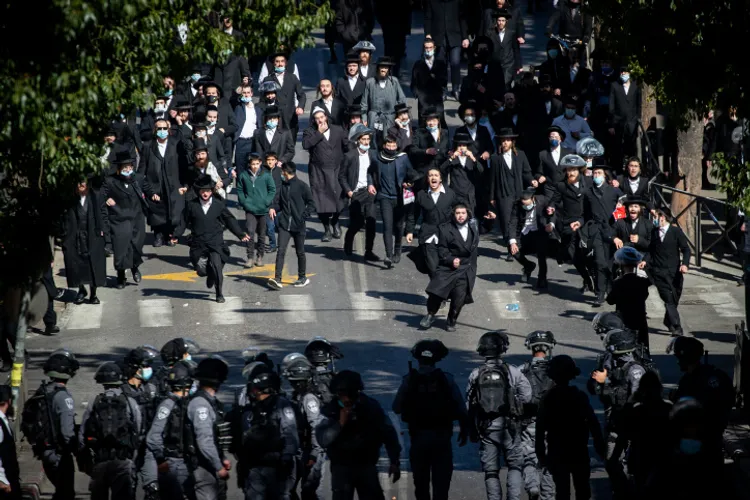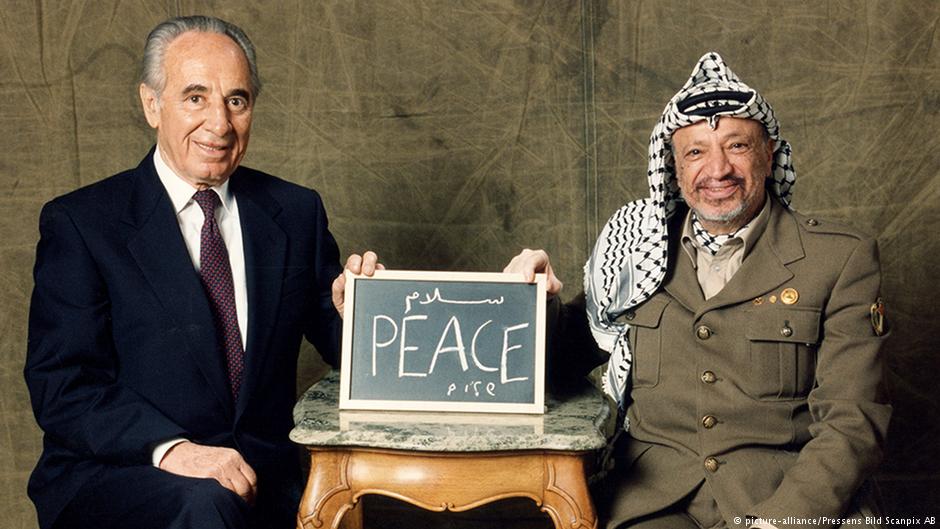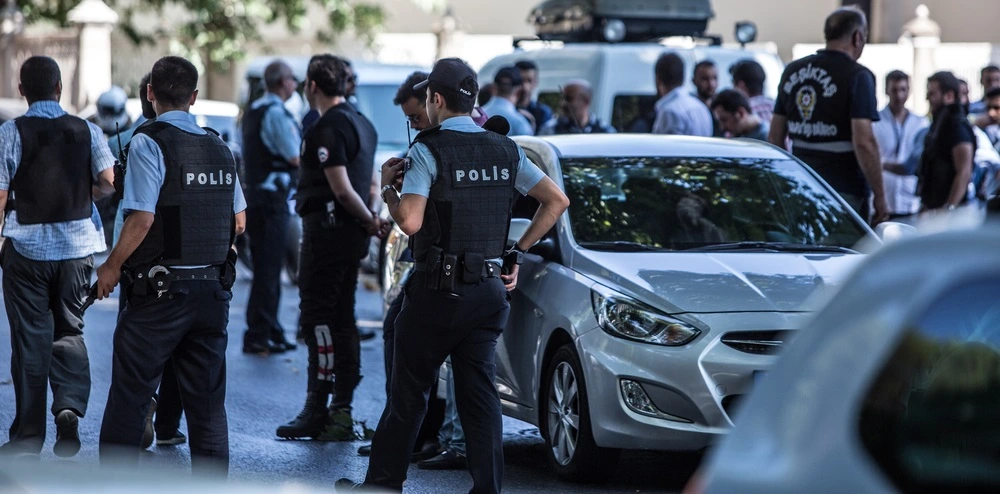2 Apr 2024
Israel-Hamas War: A Potential Breaking Point for Israeli Society
The dynamics between the Haredi Jewish community and the state of Israel are intricate and peculiar, shaped by many complex factors. Despite their historical opposition to the state's establishment and its Zionist underpinnings, they have emerged as prominent beneficiaries within Israeli society. Despite their active involvement in politics, with dedicated parties and ministerial representation in successive Israeli governments, the Haredi community seeks to diminish government authority over them. They maintain superficial compliance while preserving their self-organised societal structures.
These contradictions have been a continual source of critique within Israeli society since the State's inception. Successive Israeli administrations have consistently granted numerous privileges to the Haredi Jewish community, influenced by their political and religious sway. Chief among these privileges is their exemption from mandatory conscription, unlike other societal groups, accompanied by various financial incentives. However, the landscape is poised for significant transformation following the Gaza war.
This analysis aims to delve into the economic traits of the Haredi Jewish community and explore their broader economic impacts on Israeli society.
3 Mar 2024
What if the U.S. Ceased Providing Military Aid to Israel?
A recent statement from the European Union Foreign Policy Commissioner, Josep Borrell, urging Israel's allies, notably Washington, to cease supplying weapons to Israel has ignited widespread controversy. This call comes amid heightened concerns over the significant civilian deaths in the Gaza Strip. Coinciding with this plea, a Dutch appeals court decision has prohibited the export of all spare parts for F-35 fighter jets destined for Israel. These developments unfold against the backdrop of Israel's plans to initiate an expanded military operation in Rafah. Such an operation raises the spectre of a potential humanitarian catastrophe, particularly concerning the over 1.3 million displaced individuals from the Gaza Strip who have sought refuge in Rafah since the commencement of military activities in the enclave.
The United States provides Israel with annual military aid worth $3.8 billion, which stands as one of the most substantial military aid packages supplied by the U.S. to any country globally. This commitment was reaffirmed by U.S. officials, including President Joseph Biden, who, during his tenure as Vice President under Barack Obama, emphasised the enduring strategic alliance between the two countries. Then Vice President Biden said the U.S. commitment to Israel transcends moral obligations and is a deeply rooted strategic obligation. During a visit to Tel Aviv amid the events of Oct. 7, he underscored that “the existence of an independent and secure Israel within globally recognised borders aligns with the practical strategic interests of the United States.” He further emphasised, “I have long said: If Israel didn't exist, we would have to invent it.” Evidence of the depth of relations and continued support is further demonstrated by Congress' approval of an additional $14.1 billion in military aid to Israel. This aid is intended to bolster Israel's capabilities in its conflict with the Hamas movement, specifically by providing air and missile defence support and replenishing U.S. military stock granted to Israel. This level of support echoes the assistance provided by the United States to Israel during the October 1973 War with the Egyptian Army.
The generous and unconditional support provided by the U.S. to Israel prompts numerous inquiries, particularly in the context of the U.S.'s inability to exert pressure on Israel to stop its war on Gaza. Additionally, its loss of control over the right-wing government's decision-making process regarding the potential expansion of the war to include Rafah, portending an imminent conflict with Egypt. Hence, this analysis endeavours to address a pivotal question: Will these developments prompt a shift in the U.S. stance toward Prime Minister Benjamin Netanyahu and his right-wing government, potentially leading to a withdrawal from the notion of an expanded operation in Rafah? Furthermore, can the United States feasibly cease its military aid to this strategic ally in the Middle East?
5 Feb 2024
Navigating the Two-State Solution: Balancing Possibility and Hope in the Palestinian Cause
The Palestinian-Israeli conflict stands as one of the world's most intricate and pressing issues, marked by enduring conflicts between Palestinians and Israelis, with potentially dire consequences that could escalate into a regional war. In 1993, both Yasser Arafat, leader of the Palestine Liberation Organisation, and Israeli Prime Minister Yitzhak Rabin embraced the two-state solution, leading to the signing of the Oslo Accords. The essence of these agreements aimed at establishing two states, one for Palestinians and the other for Israelis, as a pivotal step toward a conclusive resolution to the prolonged and costly conflict. Unfortunately, the intended implementation of these agreements faltered, resulting in failed efforts and the division of Palestinian society between Fatah in the West Bank and Hamas in the Gaza Strip. Instead of fostering confidence, Israeli positions hardened toward Palestinians, leading to a surge in settlements in the West Bank and east Jerusalem. Currently, approximately 700,000 Israelis reside on lands designated for the Palestinian State, contributing to a decline in both regional and global interest in the matter.
The Palestinian cause regained global prominence with the events of October 7, marking the end of a three-decade stagnation and a background role amid the Arab Spring and subsequent regional and global crises. The Israel-Hamas War raised international concerns about the potential escalation into a regional war. It heightened fears of derailing the Middle East peace process, particularly the "two-state solution." Israeli officials have recently declared that this option no longer exists, despite opposition and warnings from some of Tel Aviv's closest allies, notably Washington.
These indicators underscore the notion that stability in the Middle East hinges on a resolution to the Palestinian cause that aligns with the national aspirations of the Palestinian people. Consequently, discussions surrounding a two-state solution have resurfaced as the optimal proposal to end the conflict, serving as an alternative to the right-wing expansion and settlement policy on the West Bank. Such a policy could potentially isolate and compromise Israel's security while significantly depleting its military and financial resources. Hence, this analysis addresses the crucial question: Is the two-state solution still viable given the current circumstances?
29 Jan 2024
Decoding the Istanbul Church Attack
This article was originally published on Ahram Online on Jan. 31, 2024.
The attack on the Santa Maria church in Istanbul is the first attack on Turkey claimed by IS since 2017. According to the Islamic State's statement, the attack was a response to one of its leaders instructing for the attack on "Jews and Christians". However, the end goal of the attack remains unclear and that raises questions about the legitimacy of IS’s claim. Over the last decade, the world has witnessed a sharp rise in terrorist attacks often claimed by terrorist groups striving to establish their relevance and influence over international politics. In fact, between 1998 and 2016, an estimated 16% of attacks were falsely claimed.
30 Nov 2023
The West Polarised: Impact of the War in Gaza
Ramifications of the Israeli-Hamas War have not been confined within Gaza or the Middle East’s borders. Polarisation over the Palestinian cause has reached a new character especially in the Western world where such a trend has never been as deep. Cracks within governments and societies can be traced to a volatility of values, exposure to social media, and demographic changes. With such an unprecedented divide over Western governments tolerating Israeli impunity in Gaza, the West is faced with a moral dilemma which might cost it it’s claimed “moral superiority”.
18 Oct 2023
Hannibal Protocol: Will Israel Burn Hamas’s Leverage?
The emergency government of Israel has taken decisive steps, announcing its intent to declare war and initiate comprehensive ground invasion preparations in response to the recent incursion by Palestinian factions on October 7, 2023. This incursion targeted over 20 locations surrounding the Gaza envelope. It resulted in the capture of numerous Israeli soldiers and officers stationed along the front lines in the Gaza Strip's secure zones. The present prisoner crisis is one of the most severe episodes in the long history of confrontations between Israel and Palestinian factions.





